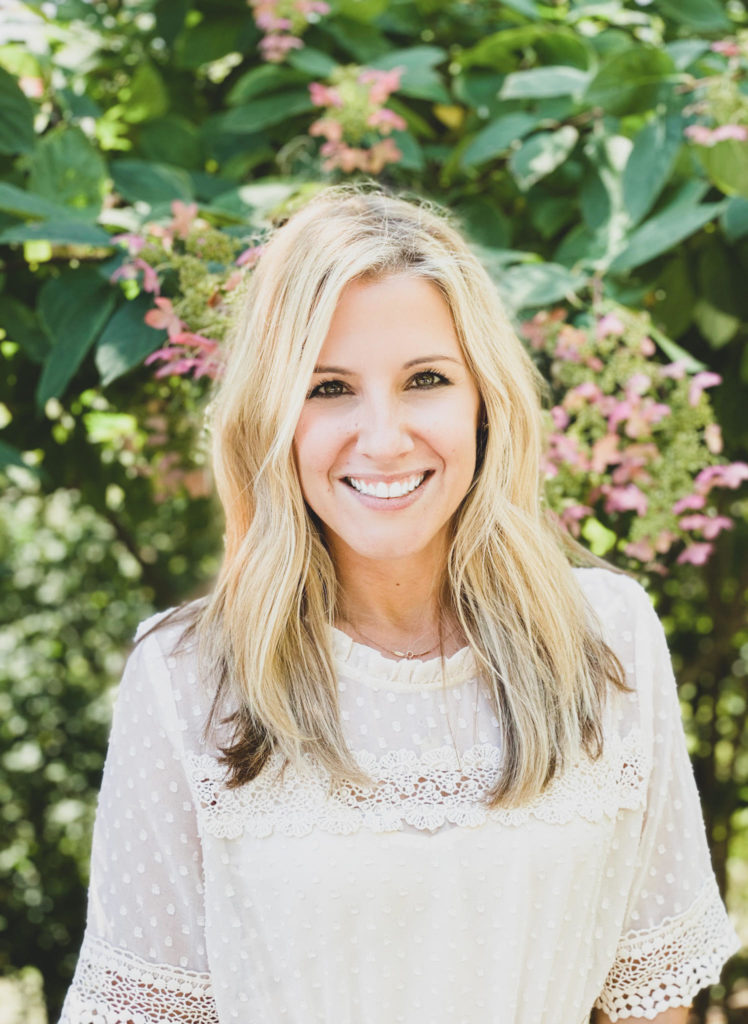
LISTEN ON APPLE | LISTEN ON SPOTIFY
“WHEN YOU COME FROM NOTHING, YOU APPRECIATE EVERYTHING. YOU WORK SO HARD FOR EVERYTHING.”
Guys, you are really going to love today’s guest. This quote and her life story really touched and moved my heart in this episode.
Today’s guest is Andrea Rothe. She’s a partner at the firm Iris Financial here in Nashville. She also just so happens to be my financial accountant – and the best decision I’ve made in my business so far.
Andrea is smart as a whip in the financial department – but her life story I think is what’s going to really wrap you into this conversation.
Andrea moved to the U.S. with her family when she was a young girl from the Former Yugoslavia. Her parents completely started over to provide a better life for their children – and Andrea didn’t know a lick of English at the time. In this episode, Andrea dives into this part of her story and how much work ethic that instilled into her lifestyle today. She authentically shares her story – and we even shed a few tears at one point.
And as always, we are covering YOUR questions on all things finance. And not the kind of finance chat that’s a little over everyone’s head and we don’t actually know what they are talking about.
In this episode, we are breaking down, in EASY TO UNDERSTAND terms, the questions we all wished we had learned in school. Things like:
- Should I own OR lease a car?
- Where do I start when it comes to investing?
- How do I build better credit?
- How do I pay myself as a business owner?
I really feel like we chatted about the money questions on all of our minds – we just didn’t have a place to ask them.
If that’s you, look no further because Andrea is YOUR GIRL in this episode.
YOUR FAQ:
Should you own OR lease a car?
I would say, the best financial decision, long-term, is to buy a car that’s lightly used. Of course everyone has their different values and goals, for some people that’s their only splurge – so go for it! But I would say for the, for a majority, a lightly used car is the best option long-term from a financial standpoint.
What is a habit or expense you see a lot of people waste their money on?
Starbucks, bottled water, ATM fees – everyone’s got their vices, but I don’t harp on those just because everyone has their own different values and goals. The number one thing that a lot of people are wasting money on right now that you can fix right away is dues and subscriptions.
Also credit card interest, I would say is a big thing. Holding a high balance, you’re paying such an exuberant amount on that interest. There’s no reason for it. That should be a goal to get that paid down.
Focus on the really big things first and then cut down on those little things.
What should I do first about Student Loans?
I would say the general rule of thumb is look at your rate: make sure you have a good rate.
If there’s better rates out there, don’t be afraid of refinancing. It’ll save a lot in the long run and really your focus should be just paying it down as quickly as possible.
You can also have multiple direct deposit accounts. I think three is the good one for a situation with student loans. Take, let’s say 5% or 10% of your earnings, and directly put it in the direct deposit to pay off your student loan.
Tips for building better credit.
So the top three things that ping your credits are :
1) On time payments -which is something you can control. And utilization ratio is another thing you can control. Utilization ratio means keeping an under 20%.
So let’s say if your credit card has a limit of one thousand dollars. In this case, do not carry a balance of more than $200 at any point – or that will ping your credit.
2) Credit history: how long an account has been opened. the peak where a lot of people get in trouble is that they’ll open a whole bunch of credit cards. Let’s say like a TJ max credit card, a Nordstrom credit card, a Southwest chase card, a Delta card.
And then they’re like, Oh boy, I’ve got 10 credit cards. I need to close some of these. That’s the worst thing you can do. Obviously, first it’s worse to have 10 credit cards, but two, you can’t just open and close, open and closed cards that will hurt your credit score. Tremendously. The best thing you can do is have credit cards for a very long period of time. However, be mindful if there’s annual fees with those credit cards.
3) Lastly, make sure that there’s no errors on the, on your credit.
A lot of times that there will be errors on it. That’s not your fault. So there’s a government website called annualcreditreport.com. And I would suggest once a year pop in there and make sure everything looks right.
What are some approved write-offs for work?
Home office deductions are a huge one. So normally on a tax return, your CPA will ask the square footage of your office space that is 100% dedicated to your line of work.
Another thing a lot of people forget about is tracking mileage and travel expenses. If you’re having to visit customers, keep track of your mileage.
Office supplies, anything dedicated to operating your business, equipment, dues, professional licensing, ink, printer, books, continuing education. Anything that is needed to operate or work from home.
Tips for someone who has never invested in wants to start?
The first thing that I would do a prioritize is paying off any high interest debt.
Number 2, if your company offers a 401k or a simple IRA and they have a match, do it! Even if it’s $10 a paycheck. Enroll in your company’s 401k because the match is free money who doesn’t love free money.
Number 3 is work towards a savings. Open up a free savings account, go to your payroll, direct deposit 10% or 15% of your income for your future.
Then lastly, if you’re wanting to get into investing, I would definitely stick with mutual funds or ETFs. Those are exchange traded funds rather than speculating on individual stocks.
How do you pay yourself when you own your own business?
Paying yourself is going to be specific to what type of entity you are.
If you are an LLC, you’re considered a single member, LLC, and you take draws. Draws means you simply are transferring money from your business account to your personal account. The only caveat to this is there’s no taxes taken out when you’re transferring that throughout the year.
I always tell my small business owners is open up a separate savings account and take that percentage every month off of your net income and move it over to your savings account tax savings accounts so you have it for your year-end taxes.
If you’re a corporation (S Corp or a C Corp corporation) you operate a little bit differently because if you own a corporation, you are an owner of the company and you can be considered an employee of the company as well. So you can put yourself on payroll, meaning that you can fall right into your bi-weekly payroll frequency along with everybody else and take a paycheck out. This mean your federal withholdings is being taken out every paycheck.
A little trick that a lot of people don’t know about is as a corporation, you can pay yourself through payroll, but you can also take draws the IRS States that you need to pay yourself a reasonable salary. There’s a common rule out there: the 60/40 rule. Pay yourself 60% through payroll and then the other 40% take it out as a distribution or a draw out of the companies. That’s a little fun, little tip.
What’s the most simple way to track finances as an independent contractor?
Open up another bank account that is strictly used for your independent contractor work. It’s really easy from a tax standpoint at year end and your CPA will thank you.
Number two, stay very organized.
A very popular organizational tool that we’ll talk about software is QuickBooks online. They have a self-employed version, which is very cheap.
And there’s also another platform called Wave, which is completely free. And that’s a great way to get started.
Number three, I would recommend developing a budget, another free, cool app that I’m sure many of you have heard of is called Mint.
Four, save for taxes each month.
Lastly, I always strongly encourage establishing a reserve savings account of three to six months, because as an independent contractor, remember those companies don’t have to use you. You’re not an employee of them. So having that reserve account of three to six months worth of expenses, stashed away
Best way to set up a retirement fund for a small business owner?
Roth IRA is a very, very simple and an easy, very popular way to start.
Just keep in mind, if eligible, there are income limits. It’s an individual retirement account that offers tax free growth and tax free withdrawals in retirement.
The second thing is the company simple IRA. It’s by far the most simple and the cheapest way to set up a retirement fund, if you have employees. So a simple IRA, the benefit of that is it doesn’t have all the administrative and costly work that a traditional 401k has.
The third option is a SEP IRA. It’s a simplified employee pension. Those are for business owners and contributions are tax deductible, which is a nice perk – investments grow tax deferred until retirement when distributions are taxed as income.
And then lastly, you’ve got your solo 401k that also has a lot of advantages for those who are self-employed and those who do not have full time employees besides themselves and their spouse.
QuickBooks tips?
I would say the number one thing that a lot of people have no idea is a feature in QuickBooks is reconciling.
Reconciling truly is matching your debits and your credits, and you get a pretty little zero at the end, meaning that you’ve zeroed it out to your starting and ending balance. And you click a reconciliation button and you feel like you won a million dollars. It’s the best feeling.




